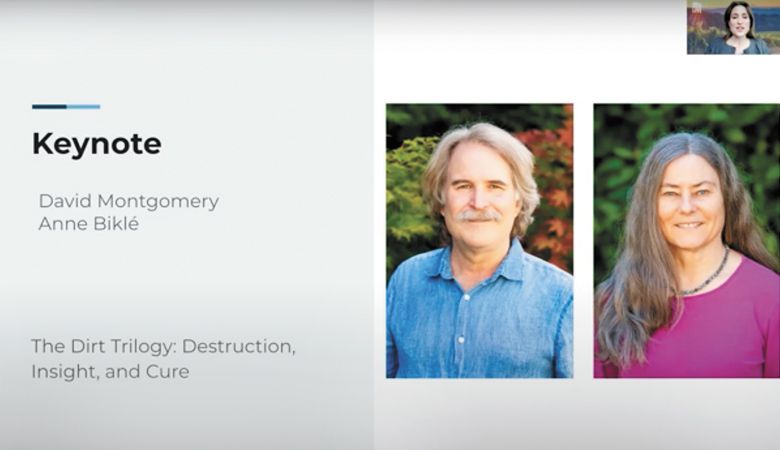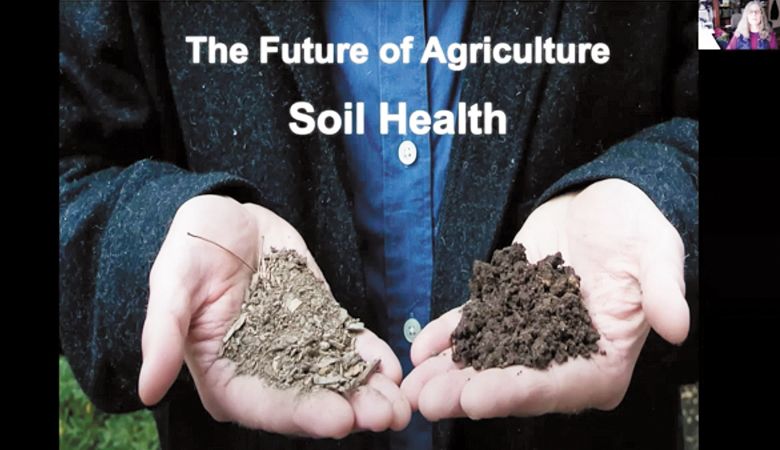Force of Nature
Organization online for annual meeting
Last month, LIVE held its annual meeting, a virtual gathering of members and industry types, sharing the latest goings-on with the environmentally-minded winegrowing association. In addition to news and a refresher on LIVE protocol, the meeting featured a pair of educational seminars.
LIVE launched in 1999. The organization pursues eco-conscious winegrowing practices through an accreditation system and important list of farming standards. Today, some 330 vineyards and 40 wineries are certified, all operating according to LIVE’s preservation and social safety requirements. Many readers have probably recognized the association’s logo while wandering through a tasting room or scanning the labels at a local bottle shop.
LIVE will be adding a third staff member to accommodate general growth and goals. There’s also a new partnership dubbed Bee Friendly Farming, which supports farming policies that preserve and promote pollinator health. This is great news for both the resident bee population and the biodiversity on which many of the region’s vineyards depend — yes, grapevines self-pollinate, but they benefit from many other flora and fauna that rely on bees.
During the first day, the meeting transitioned into a seminar about the industry’s carbon footprint and related purchasing decisions. Speakers Simon Mason of The Wine Society and Barry Dick MW, among others, discussed everything from transporting wine to bottle weights and reusable vessels.
They discussed how the industry is often perceived as naturally sustainable, even when it isn’t. This is a common belief as we tend to associate wine — especially in Oregon — with natural farming tendencies and a general harmony with nature. There are, of course, more questionable aspects that often go less reported, like traditional farming methods, the production of glass and the resources needed for long-distance shipping, just to name a few.
The group touched on the PET bottle. Made of a form of polyester called polyethylene terephthalate, the bottle has seen some recent popularity. Yet, they warned of consumers’ general distaste for plastic, even if it’s reusable and results in lighter bottles, in turn demanding less fuel for shipping. For the industry at large, the group concluded that moving this needle forward will require prominent regions like Bordeaux to take the lead.
On the second and final day, biologist Anna Biklé and geologist David R. Montgomery delivered the keynote speech. The husband-and-wife duo has written several books together, all fascinating works of science specializing in soil and its relation to agriculture. The two have appeared at other wine industry events, such as the Oregon Wine Symposium. The lecture focused on farming’s impact on soil, entitled “The Dirt Trilogy: Destruction, Insight, and Cure.”
At first, the message seemed rather bleak, with Montgomery painting a sobering picture of our global soil status. Thanks to conventional farming techniques, much of the planet’s naturally fertile areas have been degraded. It’s ironic because much of this disturbed earth is tilled to create farmland. Yet, the traditional methods by which it is often done lead to poor soil health and, in turn, erosion and lack of fertility. Over the course of history, “Big Agriculture” has actually left the land in worse shape than originally.
But it’s not all bad, naturally. The lecture turned toward insights on restoring the land and growing food in a way that keeps the soil healthy. Growing practices like minimal or no-till farming, having permanent ground cover (cover crop) and diversity were praised, approaches many Oregon winegrowers know well and deeply appreciate.
A number of interesting studies were explored, many from the couple’s published works. Montgomery talked about regenerative farming’s ability to increase the amount of organic soil in the land and even improve the phenolics of the fruit the vines produce.
The mic was then handed off to Biklé, who started by breaking down her own farming project at her Seattle home. She touted the benefits of organic matter and diversity in the soil as a means of restoring degraded swaths of land — and proved as much through her personal project. In addition, she described how traditional farmers tend to over-amend the soil, catering it to the perceived needs of the plant. In actuality, the plant knows how to grow without any extra help and usually thrives from the natural struggle. “If you just let nature work, it knows what it’s doing,” she says.
An interesting tale was told about tomato farming and how so much of agriculture is pushing for yield over just about everything else. Biklé concluded that consumers love flavor and the science of flavor is based on recognizing when something is ripe. There’s a seasonality to that, sure, but it’s also an organic recognition of when a particular crop is flexing the greatest nutrient content. We naturally want the most flavorful crop, the August tomato from our backyard as opposed to the January strawberry from a greenhouse.
One slide depicted a simple but important flow chart, moving from healthy soil to healthy crops and farm animals, to healthy people. It’s an easy thing to overlook, as so much of soil health is invisible to the naked eye — the biome and all that microbial goodness just beneath our feet.
Readers are encouraged to check out the couple’s shortlist of published books. Although technical, the work is accessible, fascinating and connected to the viticultural realm. Their upcoming title, “What Your Food Ate,” will be released in June.
Of course, it’s not an annual meeting without an award. Andante Vineyard of Dallas, Oregon, was named a hero by Salmon-Safe, a recognition of clean growing practices that keep the area watershed and its fish dwellers healthy.












